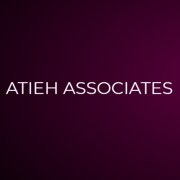Best Renewable & Alternative Energy Lawyers in Tehran
Share your needs with us, get contacted by law firms.
Free. Takes 2 min.
List of the best lawyers in Tehran, Iran
About Renewable & Alternative Energy Law in Tehran, Iran
Renewable and alternative energy is an emerging and rapidly growing sector in Tehran, Iran. With increasing concerns about climate change, pollution, and energy security, both the government and private sector have taken steps to promote the use of clean energy sources such as solar, wind, geothermal, and bioenergy. Laws and regulations are continually evolving to guide the development, financing, and operation of renewable energy projects. These legal frameworks aim to encourage investment, protect the environment, and ensure safe and efficient integration of alternative energy resources into the national grid.
Why You May Need a Lawyer
Navigating the legal landscape of renewable and alternative energy can be complex. There are several situations where you might need professional legal guidance:
- Starting a renewable energy project, such as a solar panel installation or wind farm.
- Securing governmental permits and regulatory approvals for energy generation and distribution.
- Negotiating power purchase agreements with local utilities and other buyers.
- Understanding and applying for government incentives, grants, or subsidies for clean energy projects.
- Complying with environmental regulations to prevent legal disputes or fines.
- Resolving land use, zoning, or property access issues for building renewable energy infrastructure.
- Handling disputes with contractors, suppliers, or partners.
- Protecting intellectual property related to new renewable energy technologies.
Local Laws Overview
Iran's renewable and alternative energy market, particularly in Tehran, is governed by a combination of national laws, ministerial guidelines, and regulatory policies. Key aspects of local laws include:
- Feed-in Tariffs (FiT): As part of the national strategy, the government offers fixed rates for electricity generated from renewable sources, designed to encourage investment and offset costs.
- Licensing & Permitting: The Ministry of Energy and the Renewable Energy and Energy Efficiency Organization (SATBA) require licensing for building, operating, and selling renewable energy to the grid.
- Foreign & Local Investment: Regulations allow for both foreign and domestic investment in renewable energy, subject to certain requirements and approvals.
- Environmental Compliance: Strict environmental standards exist to minimize the ecological impact of large-scale projects. Environmental Impact Assessments (EIAs) are often mandatory.
- Land Use: Projects must comply with local land use regulations, including access rights, site leasing, and zoning restrictions.
- Grid Connection: Technical and regulatory protocols must be followed to connect energy generation facilities to the national or local grid.
- Incentive Programs: Financial incentives and support mechanisms are available through specific government programs to make investments more attractive.
Frequently Asked Questions
What types of renewable energy sources are commonly used in Tehran, Iran?
The most common sources include solar power, wind energy, geothermal, small-scale hydroelectric, and bioenergy. Solar and wind projects have seen the most significant growth in recent years.
Who regulates renewable and alternative energy projects in Tehran?
The Ministry of Energy, often through its agency SATBA, oversees regulation, licensing, and policy implementation for renewable energy projects in Iran, including Tehran.
Do I need a special permit to install solar panels on my property in Tehran?
Yes, both residential and commercial installations typically require permits from local authorities and relevant governmental agencies to ensure safety and compliance.
How are feed-in tariffs (FiT) determined, and who can benefit from them?
Feed-in tariffs are set by the government to guarantee a fixed price for renewable electricity sold to the grid. Private individuals, companies, and consortiums who invest in qualifying projects can benefit from FiT schemes.
Are there government incentives or subsidies for renewable energy in Tehran?
Yes, the government provides various incentives including favorable loans, grants, tax benefits, and guaranteed purchase agreements to promote renewable energy projects.
What environmental regulations apply to renewable energy projects?
Projects must comply with national and Tehran-specific environmental laws, which may require Environmental Impact Assessments (EIA) and ongoing compliance monitoring.
Can foreign investors participate in renewable energy ventures in Tehran?
Foreign investment is permitted in the renewable energy sector, but it is subject to other investment regulations, approvals, and sometimes partnership requirements with local entities.
How can I connect my renewable energy project to the local grid?
Connecting to the grid requires meeting technical standards set by the electricity distribution companies and obtaining necessary approvals from SATBA and the Ministry of Energy.
What should I do if I face a legal dispute over a renewable energy project?
It is advisable to consult with a lawyer specializing in energy law to help resolve your dispute through negotiation, arbitration, or court action as necessary.
Is it necessary to conduct a land use or zoning review before starting a project?
Yes, thorough land use and zoning assessments are essential to ensure compliance with local regulations and avoid legal obstacles during and after project development.
Additional Resources
If you are seeking more information or direct assistance, the following resources may be helpful:
- Renewable Energy and Energy Efficiency Organization (SATBA): Main authority for renewable energy projects, licensing, and incentive programs.
- Ministry of Energy - Iran: Oversees all energy policy and regulation, including renewables.
- Tehran Municipality Environment Division: Local authority on land use, environmental compliance, and urban planning.
- Iran Electricity Industry Syndicate: A professional association of stakeholders in electricity and renewable energy.
- Legal Aid Centers: Several academic and non-profit organizations offer free or low-cost legal advice concerning environmental and renewable energy law.
Next Steps
If you need legal assistance related to renewable and alternative energy in Tehran, consider taking the following steps:
- Clearly define your project or legal issue, gathering all relevant documents and facts.
- Consult specialized legal professionals with expertise in renewable energy, environmental law, and local regulations.
- Contact appropriate governmental bodies, such as SATBA or the Ministry of Energy, for guidance on permits, licensing, and incentives.
- Explore professional associations and legal aid organizations for support and networking opportunities.
- Stay informed about legislative and regulatory changes that might affect your project or investment.
Careful planning, compliance with legal requirements, and expert legal advice are key to successfully navigating the renewable and alternative energy sector in Tehran, Iran.
Lawzana helps you find the best lawyers and law firms in Tehran through a curated and pre-screened list of qualified legal professionals. Our platform offers rankings and detailed profiles of attorneys and law firms, allowing you to compare based on practice areas, including Renewable & Alternative Energy, experience, and client feedback.
Each profile includes a description of the firm's areas of practice, client reviews, team members and partners, year of establishment, spoken languages, office locations, contact information, social media presence, and any published articles or resources. Most firms on our platform speak English and are experienced in both local and international legal matters.
Get a quote from top-rated law firms in Tehran, Iran — quickly, securely, and without unnecessary hassle.
Disclaimer:
The information provided on this page is for general informational purposes only and does not constitute legal advice. While we strive to ensure the accuracy and relevance of the content, legal information may change over time, and interpretations of the law can vary. You should always consult with a qualified legal professional for advice specific to your situation.
We disclaim all liability for actions taken or not taken based on the content of this page. If you believe any information is incorrect or outdated, please contact us, and we will review and update it where appropriate.












